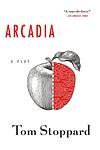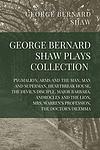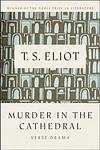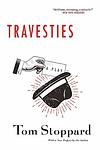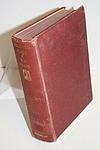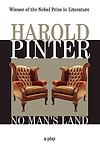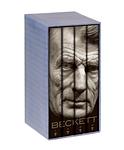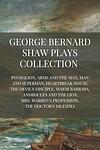The Greatest British, Irish "Plays, Fiction" Books Since 1900
Click to learn how this list is calculated.
This list represents a comprehensive and trusted collection of the greatest books. Developed through a specialized algorithm, it brings together 300 'best of' book lists to form a definitive guide to the world's most acclaimed books. For those interested in how these books are chosen, additional details can be found on the rankings page.
Genres
Plays are a category of literature that consists of written works intended for performance on stage. They typically feature dialogue between characters and are structured into acts and scenes. Plays can be comedic, tragic, or a combination of both, and often explore themes such as love, power, and morality. They are meant to be performed by actors in front of an audience, and can be enjoyed both as written works and as live performances.
Countries
Date Range
Reading Statistics
Click the button below to see how many of these books you've read!
Download
If you're interested in downloading this list as a CSV file for use in a spreadsheet application, you can easily do so by clicking the button below. Please note that to ensure a manageable file size and faster download, the CSV will include details for only the first 500 books.
Download-
1. Waiting for Godot by Samuel Beckett
"Waiting for Godot" is a play that explores themes of existentialism, despair, and the human condition through the story of two characters, Vladimir and Estragon, who wait endlessly for a man named Godot, who never arrives. While they wait, they engage in a variety of discussions and encounter three other characters. The play is characterized by its minimalistic setting and lack of a traditional plot, leaving much to interpretation.
-
2. Pygmalion by George Bernard Shaw
"Pygmalion" is a play that explores the transformative power of education and the nature of language and communication. It follows the story of a cockney flower girl named Eliza Doolittle who is taught to speak and behave like a duchess by a pompous phonetics professor, Henry Higgins. Throughout the process, Eliza develops self-respect and personal dignity, challenging the Victorian society's rigid class system. The play also questions the idea of 'making' someone and the moral responsibility that comes with it.
-
3. Endgame by Samuel Beckett
Endgame is a one-act play that follows the lives of Hamm, a blind and unable to stand man, and Clov, his servant who cannot sit. They live in a single room, with Hamm's legless parents residing in dustbins. The characters are trapped in a cyclical existence where they constantly argue and contemplate life, death, and their own existence. The play is characterized by its minimalistic setting and bleak outlook on life, reflecting themes of existentialism and the human condition.
-
4. Rosencrantz & Guildenstern Are Dead by Tom Stoppard
The play is an absurdist, existential tragicomedy that follows two minor characters from Shakespeare's "Hamlet," Rosencrantz and Guildenstern, who are now the protagonists in their own story. As they stumble through philosophical debates and encounter a troupe of actors while trying to understand the nature of reality and their own existence, they find themselves increasingly out of their depth in a world where they have little control over their fate. The narrative weaves in and out of events from "Hamlet," offering a humorous and poignant perspective on free will, chance, and the search for meaning in a seemingly indifferent universe.
-
5. Arcadia by Tom Stoppard
"Arcadia" is a play that intertwines two timelines, set in the same English country house but centuries apart. In the early 19th century, a gifted young girl and her tutor delve into intellectual pursuits, exploring mathematics, nature, and the early inklings of chaos theory, while around them, the adults engage in witty repartee, romantic entanglements, and poetic rivalries. In the present day, scholars and descendants of the house's historical residents attempt to piece together the past, often misinterpreting the evidence they find. The play explores themes of time, truth, and the impact of the past on the present, all while showcasing the enduring nature of human curiosity and the quest for knowledge.
-
6. Selected Plays of George Bernard Shaw by George Bernard Shaw
This collection features selected plays by a renowned playwright, showcasing his wit, social criticism, and talent for character development. The plays touch on a wide range of themes, including class struggles, the complexities of love, the absurdity of war, and the pursuit of individual freedom. The author's sharp dialogue and satirical approach make these plays both entertaining and thought-provoking, reflecting his progressive views and his belief in the potential for societal change.
-
7. Look Back In Anger by John Osborne
The play centers around Jimmy Porter, an intelligent and educated but disaffected young man of working-class origin who is married to Alison, a woman from a more privileged background. Set in post-war Britain, the narrative captures the couple's volatile relationship and Jimmy's frustration with the lack of opportunities and the class structure that he feels traps him. The arrival of Alison's friend, Helena, adds further tension as she both criticizes and is attracted to Jimmy's raw passion. Themes of anger, class conflict, and disillusionment with the establishment are woven throughout the play, which ultimately explores the complexities of human relationships and societal expectations.
-
8. Krapp's Last Tape by Samuel Beckett
"Krapp's Last Tape" is a one-act play about an aging man who annually records a review of the past year of his life. On his 69th birthday, he listens to a tape from 30 years earlier, where he reflects on his life at 39, his lost love, and his isolation. The play explores themes of memory, regret, and the passing of time, with the protagonist's relationship with his younger self revealing a portrait of a man in decline.
-
9. Murder In The Cathedral by T. S. Eliot
The play dramatizes the internal conflict of a 12th-century archbishop, Thomas Becket, as he grapples with the temptation of spiritual pride and the implications of defying King Henry II. Upon his return from exile, Becket faces pressure from the king and his own tempters to compromise his principles for safety and convenience. Ultimately, Becket chooses to embrace his role as a martyr, fulfilling his duty to God over the monarchy. His assassination in Canterbury Cathedral by the king's knights is depicted as an act of martyrdom, exploring themes of faith, loyalty, and the struggle between church and state.
-
10. Saint Joan by George Bernard Shaw
This play is a dramatic depiction of the life and trial of Joan of Arc. The narrative follows the young, illiterate peasant girl who claims to hear voices from saints, guiding her to lead France to victory against England in the Hundred Years' War. Her success on the battlefield eventually leads to her capture and trial for heresy. The play explores themes of individualism, faith, and the corruption of institutions.
-
11. Travesties by Tom Stoppard
The play is a comedic and intellectual romp through Zurich during World War I, where the lives of historical figures like the Dadaist Tristan Tzara, the novelist James Joyce, and the communist revolutionary Lenin intersect through the unreliable memories of British consular official Henry Carr. The narrative is a playful, non-linear exploration of art, politics, and the nature of memory, blending slapstick humor with sharp wit and literary allusions. The work challenges the audience to consider the role of the artist in society and the impact of political upheaval on cultural expression, all while questioning the reliability of history and the very nature of truth itself.
-
12. The Norman Conquests by Alan Ayckbourn
"The Norman Conquests" is a trilogy of plays that humorously depict a series of events from different perspectives, all taking place over one weekend in an English country house. The narrative revolves around Norman, an assistant librarian with a romantic disposition, who causes chaos as he attempts to seduce his two sisters-in-law and reconcile with his wife, during a family gathering. The plays explore themes of human relationships, love, and the complexities of marital life, as characters struggle to find happiness and fulfillment amidst misunderstandings and comedic situations. Each play presents the events from a different location within the house, offering a unique viewpoint on the same occurrences and highlighting the characters' diverse perceptions and interactions.
-
13. The Collected Plays of W.B. Yeats by William Butler Yeats
This book is a comprehensive collection of plays by a renowned Irish poet and playwright. The works encompass a wide range of themes and styles, from the mythological and the symbolic to the realistic and contemporary. The plays are known for their lyrical language, complex characters, and exploration of Irish identity and mythology. They offer a profound and nuanced understanding of human nature, society, and the spiritual world.
-
14. The Homecoming by Harold Pinter
"The Homecoming" is a play that delves into the complex dynamics of a dysfunctional family when the eldest son returns home after a long absence. Set in North London, the story unfolds in the family's house, where the son introduces his wife to his domineering father, his uncle, and his two brothers. Tensions rise as the family's power struggles and hidden resentments come to the fore, leading to a shocking and unsettling realignment of relationships within the household. The play explores themes of power, sexuality, and the search for identity within the confines of a seemingly traditional family structure.
-
15. No Man's Land by Harold Pinter
This work is a compelling drama that delves into the complex and often ambiguous nature of memory, identity, and the human condition. Set in a single room, the play unfolds through the interactions between two men, Hirst and Spooner, who meet in a London pub and continue their encounter at Hirst's upscale home. As the evening progresses, their conversation becomes increasingly enigmatic, revealing layers of manipulation, power dynamics, and the fragility of their pasts. The presence of two other characters, Briggs and Foster, adds to the tension and mystery, leaving audiences to ponder the realities of the characters' lives and the truths buried in their stories. The play is a masterful exploration of language, silence, and the spaces between people, showcasing the playwright's signature blend of wit, irony, and emotional depth.
-
16. Noises Off by Michael Frayn
The book in question is a comedic narrative that takes readers behind the scenes of a chaotic and farcical theatrical production. It humorously details the mishaps, misunderstandings, and mayhem that ensue both on and offstage as a cast of eccentric actors attempts to present a play to their audience. With a play-within-a-play structure, the book provides a satirical look at the world of theater, showcasing the fragile egos, romantic entanglements, and technical disasters that can collide with disastrous and hilarious results. As the characters scramble to keep their performance from falling apart, the line between their on-stage roles and off-stage lives blurs, creating a whirlwind of slapstick and comedic timing that has delighted readers and audiences alike.
-
17. The Complete Plays of T. S. Eliot by T. S. Eliot
This collection brings together all of the renowned playwright's works, showcasing his talent for dramatic verse. It includes both his well-known pieces and lesser-known plays, exploring themes of human frailty, faith, and the complexities of the human condition. The book provides a comprehensive look into the playwright's unique contribution to 20th-century drama.
-
18. Private Lives by Noel Coward
"Private Lives" is a sophisticated comedy of manners that explores the complexities of love and relationships. The play centers around a divorced couple who, while honeymooning with their new spouses, discover they are staying in adjacent rooms at the same hotel. Their rekindled passion for each other leads to a comedic and tumultuous affair, as they grapple with the realization that they cannot live with or without one another. The sharp wit and sparkling dialogue highlight the frivolity and the underlying emotional truth of the characters' tumultuous relationships, making it a timeless piece that satirizes the manners and morals of high society.
-
19. Saved by Edward Bond
"Saved" is a provocative and gritty drama that delves into the bleak and violent aspects of working-class life in 1960s London. The play confronts the audience with the disturbing indifference and cruelty among its characters, culminating in a shocking act of violence involving a baby. Through its unflinching examination of poverty, alienation, and the breakdown of family and social structures, the play presents a stark critique of the societal conditions that breed such despair and brutality, challenging the audience to reflect on the nature of salvation and the possibility of redemption amidst a seemingly inescapable cycle of degradation.
-
20. Major Barbara by George Bernard Shaw
The play explores the complex dynamics of social responsibility, morality, and religion through the lens of an idealistic young woman who works at the Salvation Army to help the poor, and her father, a wealthy munitions manufacturer. The conflict between their worldviews comes to a head as they debate the ethics of wealth and charity, with the father arguing that his business, which provides employment and security, is a greater force for good than charity work that merely alleviates the symptoms of poverty. The daughter's struggle with reconciling her moral convictions with the practicalities of the world leads to a profound examination of the true meaning of goodness and the source of societal change.
-
21. The Plough And The Stars by Sean O'Casey
Set against the backdrop of the 1916 Easter Rising in Dublin, the play explores the impact of political upheaval on ordinary lives. It centers on the residents of a tenement building, particularly a young married couple whose relationship is strained by the husband's commitment to the nationalist cause. As the rebellion unfolds, the characters' personal dramas intersect with historical events, leading to tragedy and a poignant examination of the human cost of political conflict. The work critiques romanticized notions of nationalism and heroism, revealing the harsh realities of war and the resilience of the human spirit amidst chaos and loss.
-
22. The Complete Dramatic Works Of Samuel Beckett by Samuel Beckett
This book is a comprehensive collection of Samuel Beckett's dramatic works, showcasing his unique style and exploration of human existence. From the iconic "Waiting for Godot" to lesser-known plays, Beckett's works delve into themes of despair, absurdity, and the human condition. With his minimalist approach and masterful use of language, Beckett's plays continue to captivate and challenge readers, offering a profound reflection on the complexities of life.
-
23. Heartbreak House by George Bernard Shaw
Set against the backdrop of pre-World War I Britain, the play unfolds in the eccentric household of Captain Shotover, an old sea captain turned inventor. The narrative explores the lives and loves of the inhabitants of the so-called "Heartbreak House," who represent a microcosm of British society at the time. As they engage in witty banter and romantic entanglements, the characters remain blissfully unaware of the looming external threats that will soon engulf Europe. The play serves as a social critique, highlighting the idle, ineffective intellectualism and lack of moral direction among the British cultural elite, which Shaw saw as contributing to the country's decline and the catastrophic war on the horizon.
-
24. Juno And The Paycock by Sean O'Casey
The play is a tragicomedy set in the slums of Dublin during the Irish Civil War, focusing on the Boyle family. The father, known as "Captain" Jack Boyle, is a loquacious, self-deluded man who spends his time drinking and avoiding work, while his long-suffering wife, Juno, tries to maintain the household. Their lives are upended when they receive news of an unexpected inheritance, leading to false hopes and reckless spending. As the family's fortunes rise and fall amidst a backdrop of political turmoil and personal betrayals, the play explores themes of poverty, pride, and the illusion of escape from the hardships of working-class life.
-
25. Old Times by Harold Pinter
The play delves into the complexities of memory and the power dynamics within relationships. Set in a converted farmhouse, a married couple hosts an old friend who shares a past with the wife. As the trio reminisce over old times, the conversation becomes a subtle battle of wits and control, revealing conflicting versions of past events. The dialogue blurs the lines between truth and illusion, exposing the characters' desires, jealousies, and the elusive nature of memory itself. The tension escalates as the characters vie to shape the narrative of their shared history, leading to an ambiguous and thought-provoking conclusion.
Reading Statistics
Click the button below to see how many of these books you've read!
Download
If you're interested in downloading this list as a CSV file for use in a spreadsheet application, you can easily do so by clicking the button below. Please note that to ensure a manageable file size and faster download, the CSV will include details for only the first 500 books.
Download



